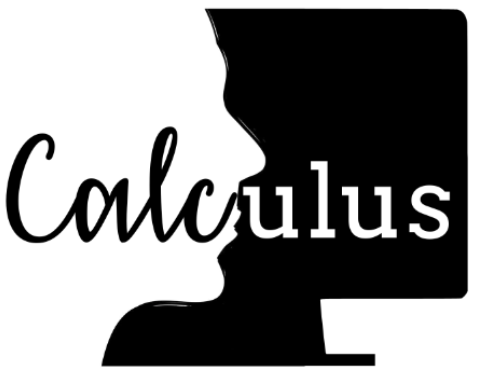

2025
Jingyuan Sun, Mingxiao Li, Marie-Francine Moens
We propose NeuralFlix, a novel framework that reconstructs dynamic visual experiences from fMRI data using spatial-temporal augmentation and a diffusion model. It addresses challenges like noise and temporal lags, advancing brain activity decoding into video formats.
AAAI 2025
details2025
Maria Mihaela Trusca, Tinne Tuytelaars and Marie-Francine Moens
Computer Vision and Image Understanding, 2025.
details2025
Liesbeth Allein, Maria Mihaela Trusca and Marie-Francine Moens
Oral presentation at the 39th Annual AAAI Conference on Artificial Intelligence (AAAI 2025), 2025.
details
2024
Allein Liesbeth, Trusca Maria Mihaela, Moens Marie-Francine
This work introduces the interpretation modeling (IM) task to capture multiple plausible interpretations of sentence semantics, focusing on social relations and moral judgments. Results highlight the complexity of IM and its potential to enhance content moderation and refine toxicity filters in online discourse.
Artificial Intelligence 2024
details2024
Jingyuan Sun, Mingxiao Li, Ruben Cartuyvels and Marie-Francine Moens
Proceedings of the 25th Annual Conference of the European Association for Machine Translation (EAMT 2024), 2024.
details2024
Maria Mihaela Trusca, Wolf Nuyts, Jonathan Thomm, Robert Hönig, Thomas Hofmann, Tinne, Tuytelaars, and Marie-Francine Moens
Large Generative Models Meet Multimodal Applications (LGM3A) Workshop @ ACM Multimedia 2024, 2024.
details2024
Vladimir Araujo, Marie-Francine Moensand Tinne Tuytelaars
Findings of the 2024 Conference on Empirical Methods in Natural Language Processing (EMNLP 2024), 2024.
details2024
Florian Mai, Nathan Cornille and Marie-Francine Moens
Proceedings of the Eighth Widening NLP Workshop (WiNLP 2024) @ EMNLP 2024, 2024.
details2024
Tingyu Qu, Tinne Tuytelaars and Marie-Francine Moens
Proceedings of the 18th European Conference on Computer Vision (ECCV 2024), 2024.
details2024
Mingxiao Li, Bo Wan, Sien Moens and Tinne Tuytelaars
Proceedings of the 18th European Conference on Computer Vision (ECCV 2024), 2024.
details2024
Jingyuan Sun, Weihao Xia, Jixing Li, Shaonan Wang, Jiajun Zhang, A. Cengiz Oztireli and Marie-Francine Moens
Proceedings of the International Joint Conference on Artificial Intelligence (IJCAI 2024), 2024.
details2024
Vladimir Araujo, Maria Mihaela Trusca, Rodrigo Tufiño and Marie-Francine Moens
Proceedings of the 2024 Joint International Conference on Computational Linguistics, Language Resources and Evaluation (LREC-COLING 2024), 2024.
details2024
Jingyuan Sun, Shaonan Wang, Zijiao Chen, Jixing Li and Marie-Francine Moens
Proceedings of the 62nd Annual Meeting of the Association for Computational Linguistics (ACL 2024) , 2024.
details2024
Parisa Kordjamshidi, Qiang Ning, James Pustejovsky and Marie-Francine Moens
Proceedings of the 2024 Conference of the North American Chapter of the Association for Computational Linguistics: Human Language Technologies (NAACL 2024), 2024.
details
2024
Nathan Cornille, Marie-Francine Moens, Florian Mai
A planning module is introduced for language models, enabling structured text generation through latent plans learned via self-supervision. This external module improves text coherence and can be easily shared for broader use.
COLM 2024
details
2024
Mingxiao Li, Tingyu Qu, Ruicong Yao, Wei Sun, Marie-Francine Moens
We propose Time-Shift Sampler to reduce exposure bias in Diffusion Probabilistic Models (DPM) without retraining. Our method significantly improving performance and FID scores.
ICLR 2024
details
2024
Wolf Nuyts, Ruben Cartuyvels, Marie-Francine Moens
We show that current models fail to generalize to unexpected situations when generating 2D visual scenes from text. Syntax improves compositional generalization in this context, if enforced by a learning objective that we propose in order to align the syntax structure with visual output representations.
TACL 2024
details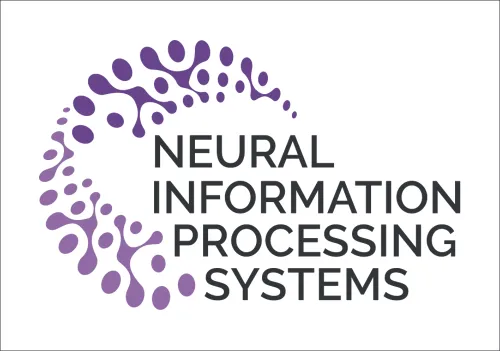
December 2023
Jingyuan Sun, Mingxiao Li, Zijiao Chen, Yunhao Zhang, Shaonan Wang, Marie-Francine Moens
Decoding visual stimuli from neural responses recorded by functional Magnetic Resonance Imaging (fMRI) is challenging. To mitigate these challenges, we introduce a two-phase fMRI representation learning framework.
NeurIPS 2023
details2023
Jingyuan Sun, Mingxiao Li and Marie-Francine Moens
Proceedings of the 26th European Conference on Artificial Intelligence (ECAI 2023), 2023
details2023
Jingyuan Sun and Marie-Francine Moens
Proceedings of the International Joint Conference on Artificial Intelligence (IJCAI 2023)
details
2023
Ruben Cartuyvels, Tom Fierens, Emiel Coppieters, Marie-Francine Moens, Damien Sileo
We leverage spatiotemporal relations to define effective self-supervised pre-training objectives that allow us to learn informative representations for satellite imagery. These representations lead to improved accuracy on the downstream task of food insecurity prediction.
Environmental Data Science 2023
details
2023
Cornille, Nathan; Moens, Marie-Francine; Laenen, Katrien
This work investigates using Causal Representation Learning to improve few-shot transfer learning under sparse distribution shifts. Experiments show that alignment aids in retaining unchanged mechanisms but has mixed effects on few-shot adaptation.
Proceedings of the Colloquium on Fundamental Challenges on Causality 2023
details 2023
Vladimir Araujo, Marie-Francine Moens and Alvaro Soto
Machine Learning and Knowledge Extraction, Special Issue on Deep Learning Methods for Natural Language Processing , 2023
details 2023
Damien Sileo and Marie-Francine Moens
Proceedings of the 12th Joint Conference on Lexical and Computational Semantics (*SEM 2023) , 2023
details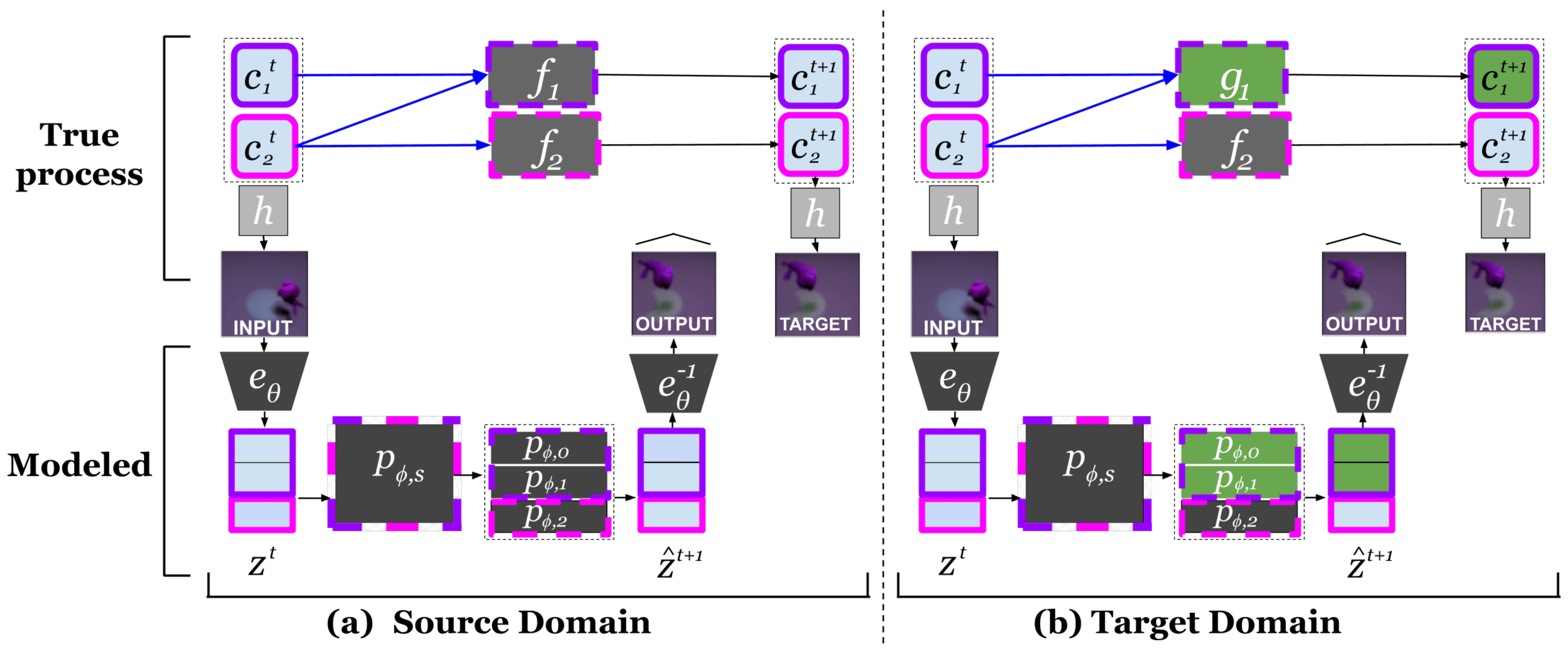
November 2023
Cornille, Nathan and Sun, Jinguan and Laenen, Katrien and Moens, Marie-Francine
We evaluate whether we can use Causal Factor Disentanglement to isolate parameters that model different causal mechanisms, and subsequently adapt more quickly in response to a Sparse Mechanism Shift.
Entropy
details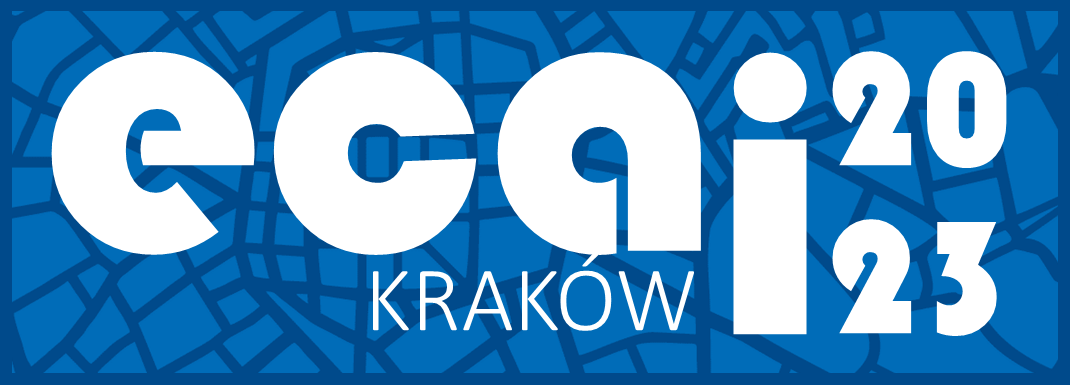
October 2023
Jingyuan Sun, Xiaohan Zhang and Marie-Francine Moens
Linking human brain and supervised ANN representations of the Chinese language.
ECAI 2023
details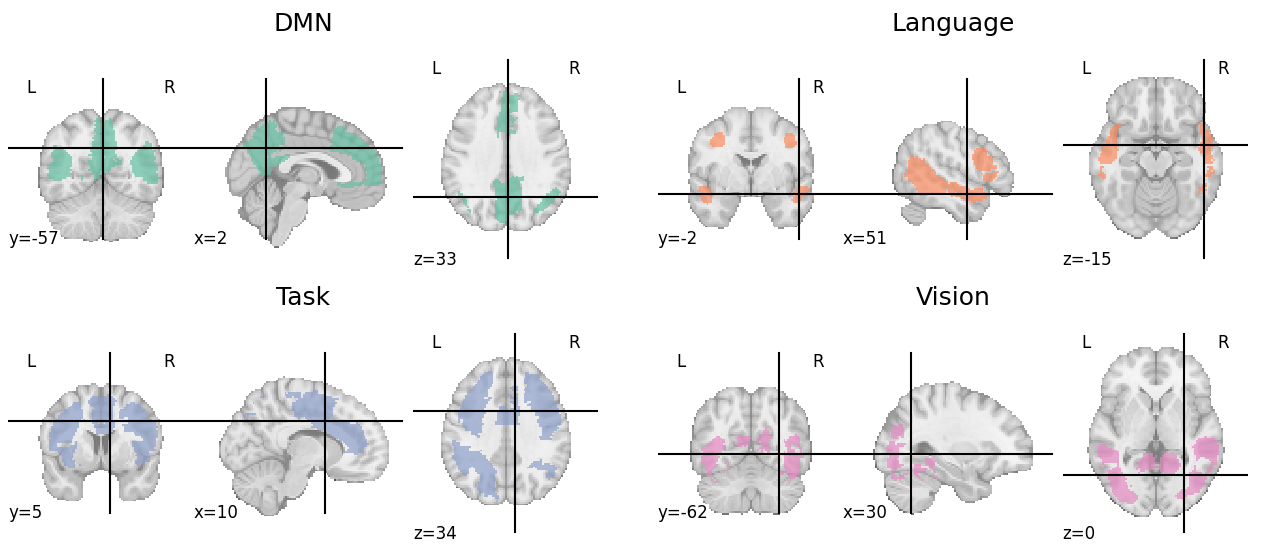
October 2023
Helena Balabin, Antonietta Gabriella Liuzzi, Jingyuan Sun, Patrick Dupont, Rik Vandenberghe, Marie-Francine Moens
We analyze the link (i.e., neural fit) between functional MRI data and pre-trained language models using different brain networks, neural fit approaches and sentence modeling paradigms.
ECAI 2023
details
End of 2023
Vitor Milewski, Maria Trusca, Marie-Francine
We explore structures and their rules in differnet modalities and compare them to make a proposal for future research directions.
MRC @ ECAI 2023
details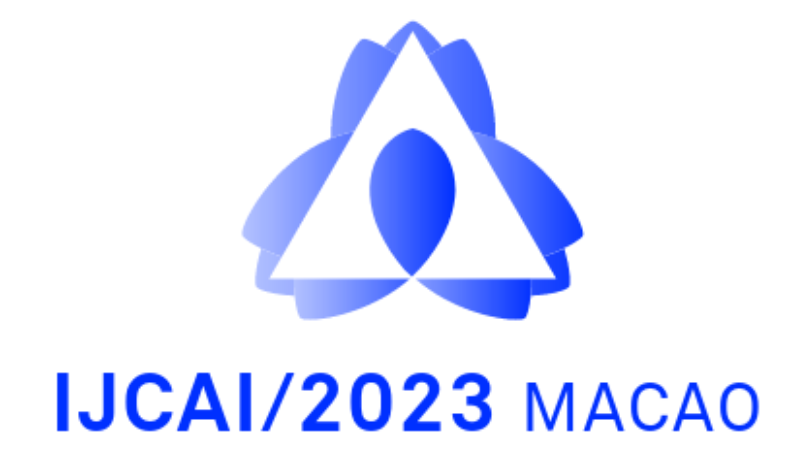
August 2023
Jingyuan Sun and Marie-Francine Moens
Investiging various supervised method and the correlation to how brains represent language.
IJCAI 2023
details
June 2023
Aristotelis Chrysakis and Marie-Francine Moens
CLVision @ CVPR2023
details
July 2023
Vladimir Araujo, Alvaro Soto, Marie-Francine Moens
Drawing inspiration from human mechanisms, we propose a memory model that performs rehearsal and anticipation while processing inputs to memorize important information for solving question answering tasks from streaming data.
ACL 2023
details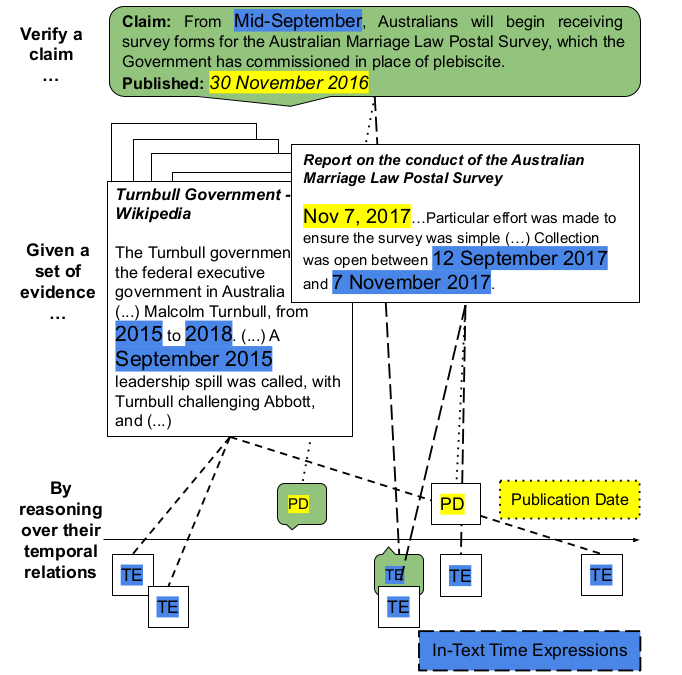
May 2023
Liesbeth Allein, Marlon Saelens, Ruben Cartuyvels, and Marie-Francine Moens
Shows that time positively influences the claim verification process of evidence-based fact-checking.
EACL 2023
details
May 2023
Aristotelis Chrysakis and Marie-Francine Moens
We explain both theoretically and empirically how experience replay biases the outputs of the model towards recent stream observations.
ICLR 2023
details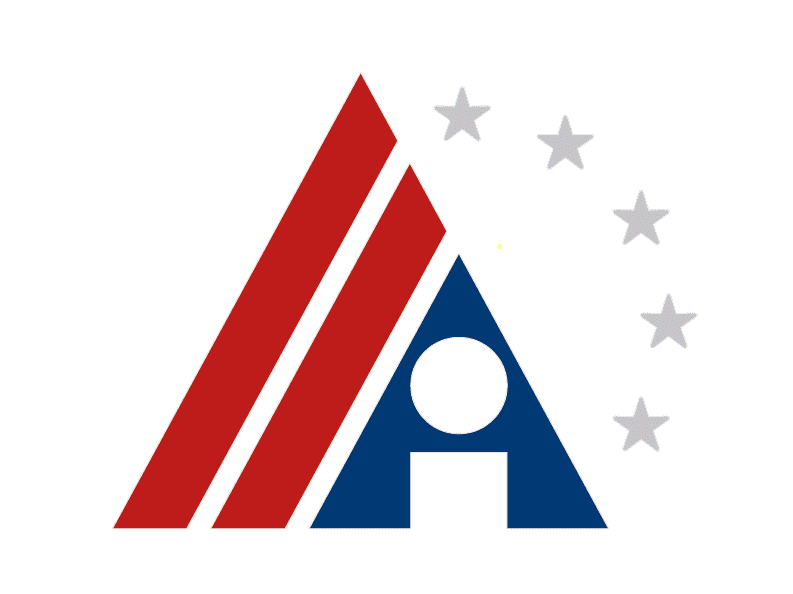
February 2023
Li, Mingxiao and Wang, Zehao and Tuytelaars, Tinne and Moens, Marie-Francine
We have designed an autonomous agent called Layout-aware Dreamer (LAD) including two novel modules, the Layout Learner and the Goal Dreamer, to mimic a humans cognitive decision process
AAAI-23
details
January 2023
Araujo, Vladimir and Moens, Marie-Francine and Soto, Alvaro
This work explores how to improve sentence-level representations of pre-trained models by borrowing ideas from predictive coding theory
Machine Learning and Knowledge Extraction
details
2022
Li Ruiqi, Allein Liesbeth, Sileo Damien, Moens Marie-Francine
This chapter examines how NLP systems process discourse connectives, assessing nine popular models' comprehension and the impact of context and tasks. Results show disparities in processing connectives, highlighting the importance of explicit connective comprehension for improving computational language understanding.
Book: Discourse Markers in Interaction: From Production to Comprehension
details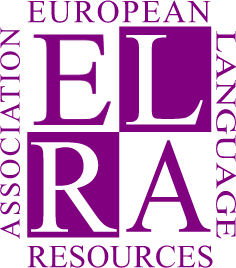
June 2022
Vladimir Araujo, Andrés Carvallo, Souvik Kundu, José Cañete, Marcelo Mendoza, Robert E. Mercer, Felipe Bravo-Marquez, Marie-Francine Moens, Alvaro Soto
A new benchmark for spanish sentence representations
LREC 2022
details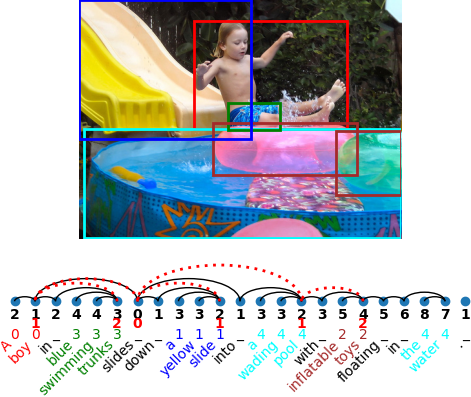
May 2022
Milewski, Victor and de Lhoneux, Miryam and Moens, Marie-Francine
we introduce scene trees, by mapping the linguistic dependency tree ontop of regions, to investigate if BERT learns structures over the image regions.
ACL 2022
details
November 2022
Vladimir Araujo, Julio Hurtado, Alvaro Soto, and Marie-Francine Moens
A novel method called Entropy-based Stability-Plasticity is introduced to address the stability-plasticity dilemma in neural networks.
CVPR 2022
details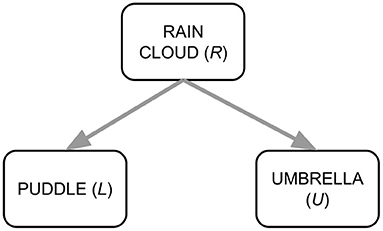
March 2022
Cornille, Nathan and Laenen, Katrien and Moens, Marie-Francine
We critically analyze a recent technique that uses the toolbox of causality to improve on OOD performance, elucidating to what extent it actually finds confounders, under what assumptions it performs deconfounding, and whether the reported OOD performance is actually linked to the causal tools.
Frontiers in Artificial Intelligence
details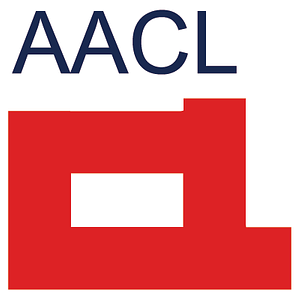
November 2022
Vladimir Araujo, Helena Balabin, Julio Hurtado, Alvaro Soto, and Marie-Francine Moens
by investigate relevance of selective memory population in the lifelong learning for language, methods that randomly store a uniform number of samples lead to high performances
AACL-IJCNLP 2022
details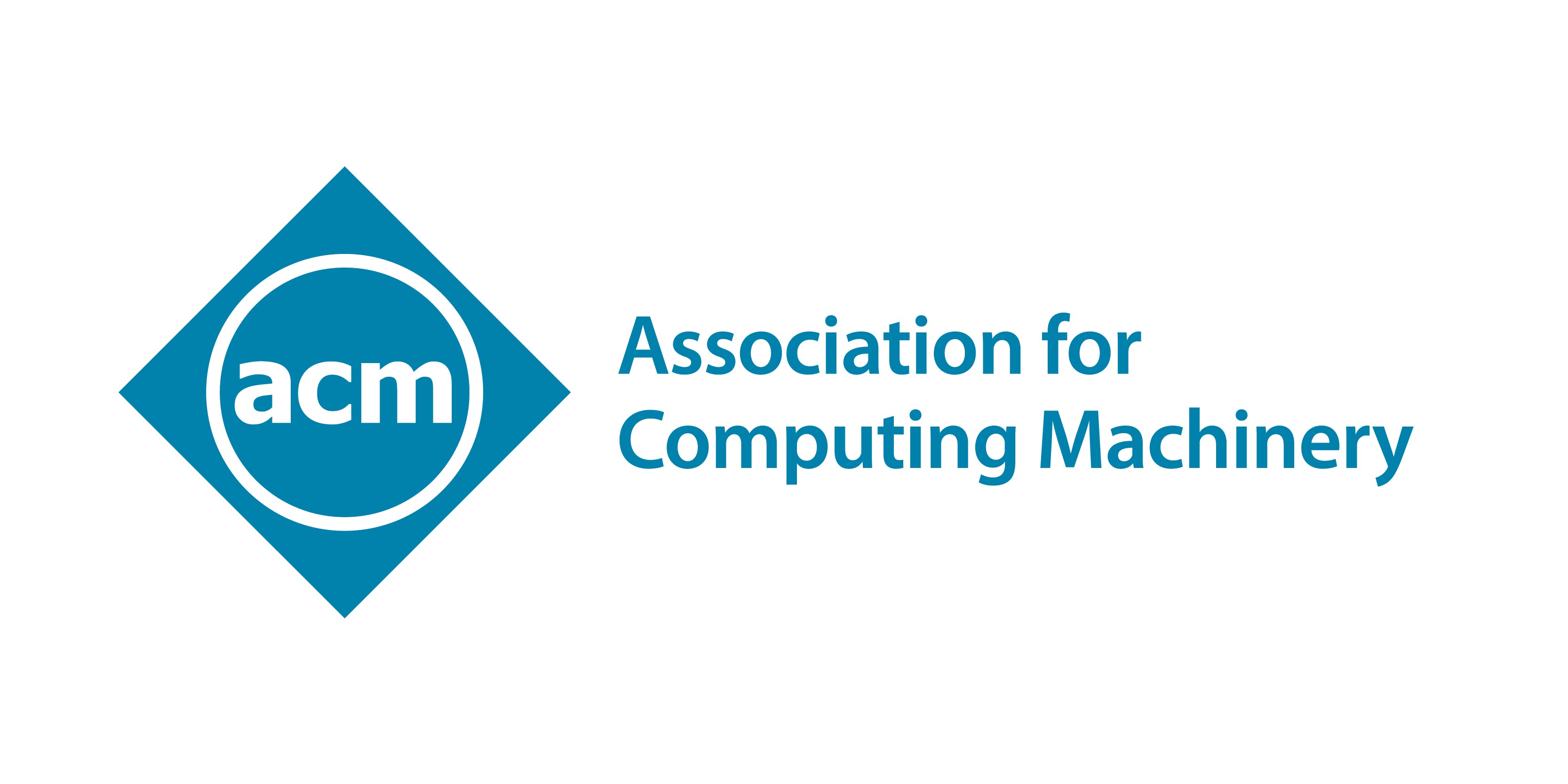
January 2023
Li, Ruiqi and Moens, Marie-Francine
Accepted for upcomming issue!
ACM Computing Surveys
details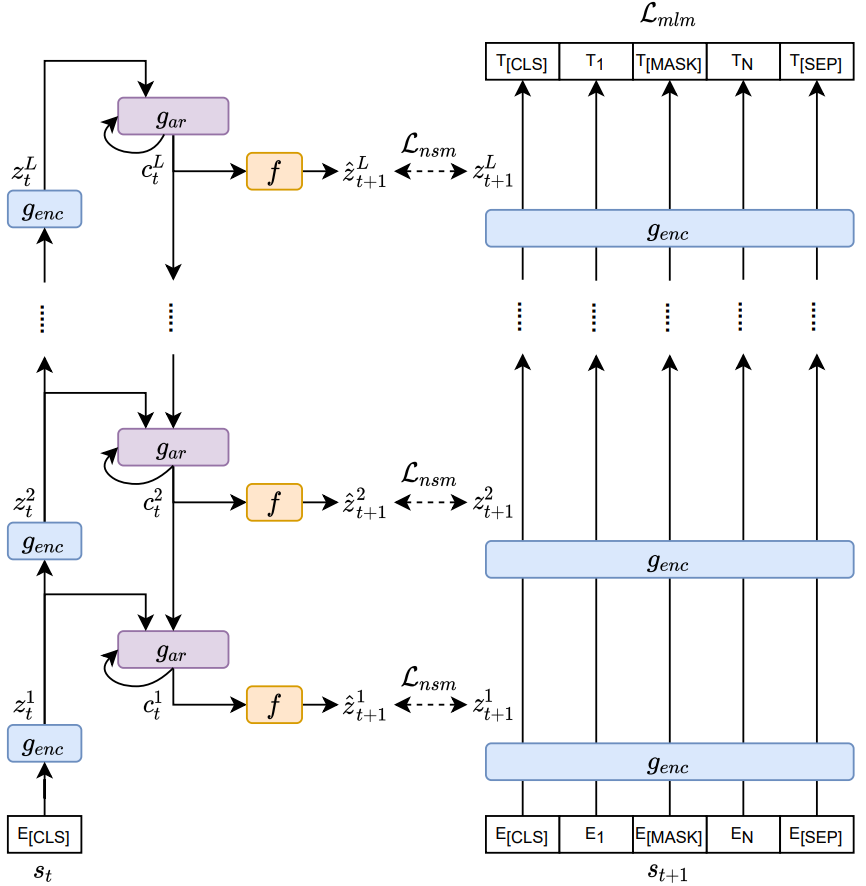
November 2021
Araujo, Vladimir and Villa, Andres and Mendoza, Marcelo and Moens, Marie-Francine and Soto, Alvaro
We propose to use ideas from predictive coding theory to augment BERT-style language models with a mechanism that allows them to learn suitable discourse-level representations.
EMNLP 2021
details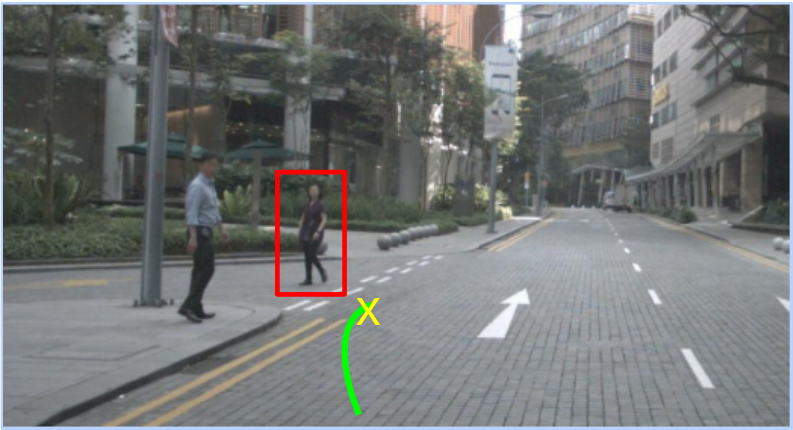
May 2021
Deruyterre, Thierry and Milewski, Victor and Moens, Marie-Francine
When a command is given to a self-driving cars, this can cause ambiguous solutions. A method to solve this through visual and textual means is proposed.
Engineering Applications of Artificial Intelligence
details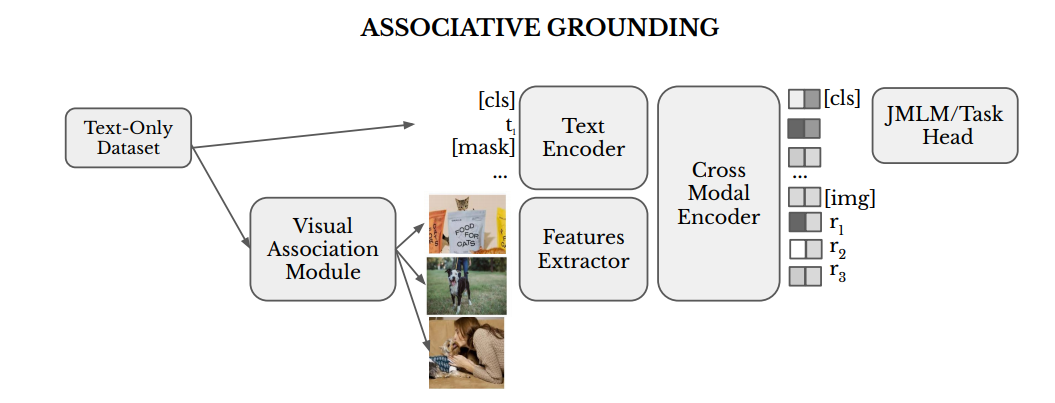
April 2021
Sileo, Damien
Conception, categorization and strategies to leverage multimodal pretraining for text-only tasks
LANTERN 2021
details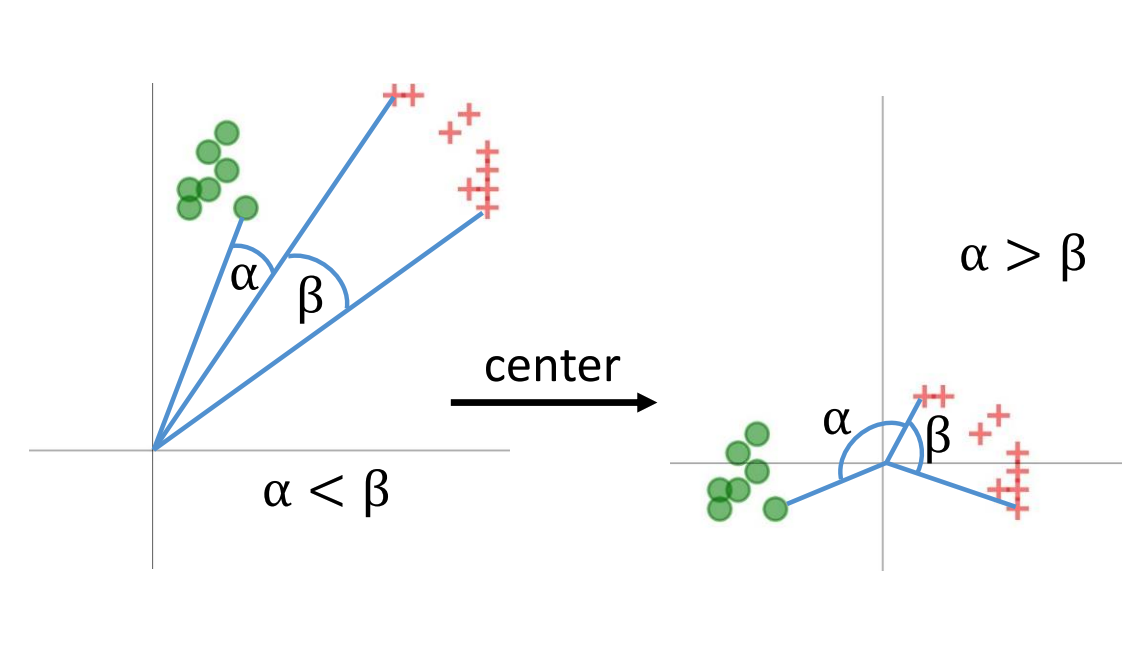
April 2021
Collell, Guillem and Moens, Marie-Francine
We investigate the impact of transformations on semantic distances between embeddings produced by common language models and image CNNs.
ECIR 2021
details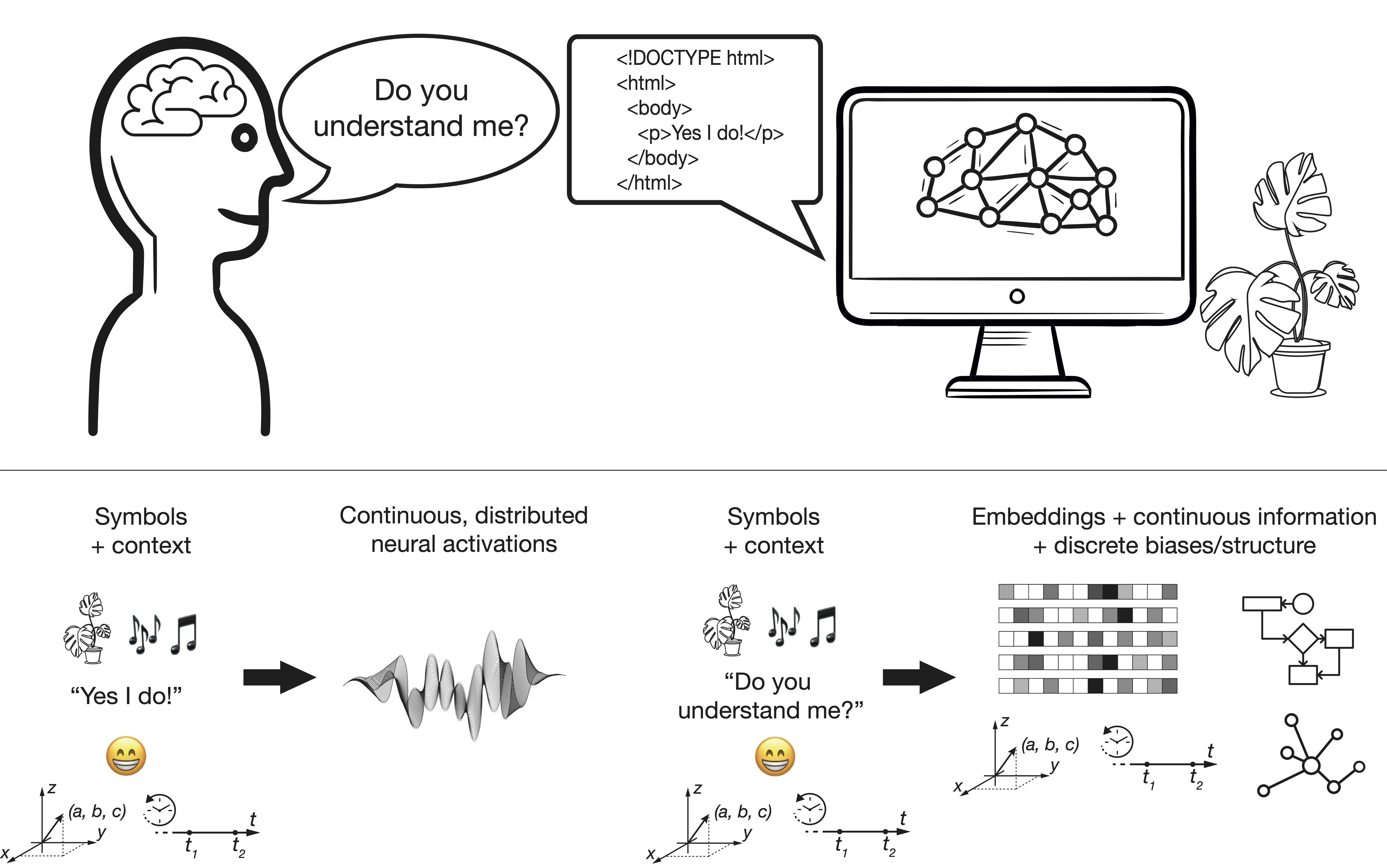
January 2021
Ruben Cartuyvels, Graham Spinks, Marie-Francine Moens
A position paper that reflects on the role of discrete and continuous representations and processing in the deep learning era.
AI Open
details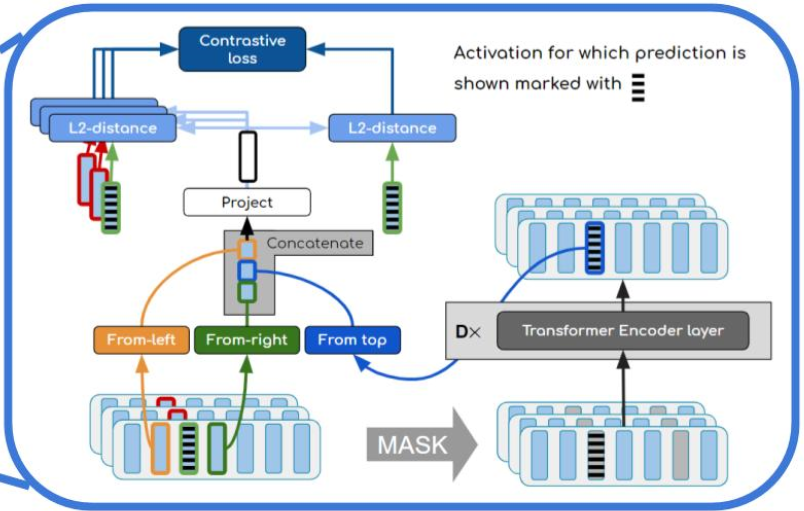
November 2020
Cornille, Nathan, Moens, Marie-Francine
PIR is an unsupervised learning method inspired by predictive coding in the brain, where models predict both input and future internal activations to learn representations, avoiding trivial solutions with a contrastive loss.
NAISys 2020
details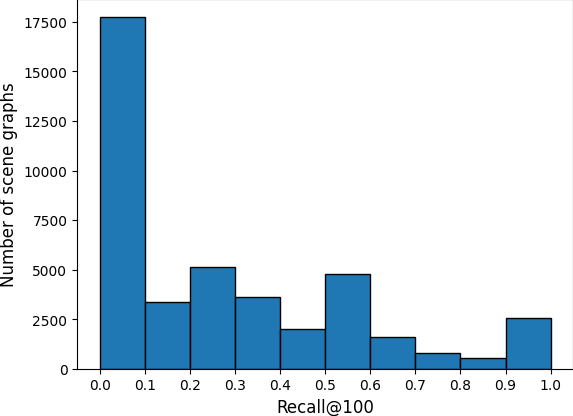
december 2020
Milewski, Victor and Moens, Marie-Francine and Calixto, Iacer
To better describe relations in captions, several studies propose to use scene graphs. We develop and analyse methods for using these graphs and find that they are currently too noisy.
AACL-IJCNLP 2020
details
December 2020
Ruben Cartuyvels, Graham Spinks, Marie-Francine Moens
An iterative inference algorithm for multi-hop explanation regeneration, that retrieves relevant factual evidence in the form of text snippets, given a natural language question and its answer.
COLING 2020
details
December 2020
Pavllo, Dario, Graham Spinks, Thomas Hofmann, Marie-Francine Moens, and Aurélien Lucchi
Generating 3D images with 2D supervision by conditioning the model on class labels, attributes, and text.
NeurIPS 2020
details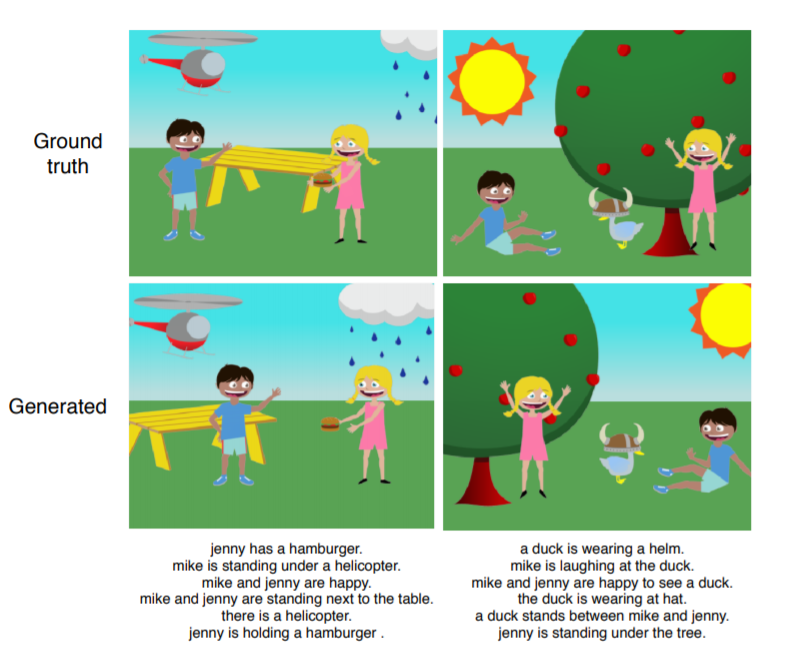
November 2020
Radevski, Gorjan and Collell, Guillem and Moens, Marie-Francine and Tuytelaars, Tinne
We propose Spatial-Reasoning Bert (SR-Bert) for the problem of multimodal spatial understanding by decoding a set of language-expressed spatial relations to a set of 2D spatial arrangements in a multi-object and multi-relationship setting.
EMNLP 2020
details
November 2020
Cornille, Nathan and Collel, Guillem and Moens, Marie-Francine
Poster that reflects on some of the issues with an internal contrastive objective that aims to improve representation learning.
NAISys 2020
details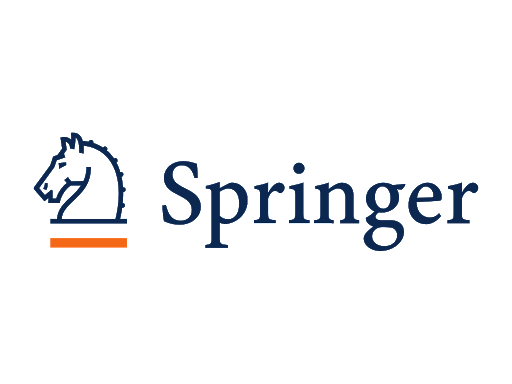
October 2020
Spinks, Graham and Cartuyvels, Ruben and Moens, Marie-Francine
In this position paper we argue that modern machine learning approaches fail to adequately address how grammar and common sense should be learned.We advocate for experiments with the use of abstract, confined world environments where agents interact with the emphasis on learning world models.
LNEE
details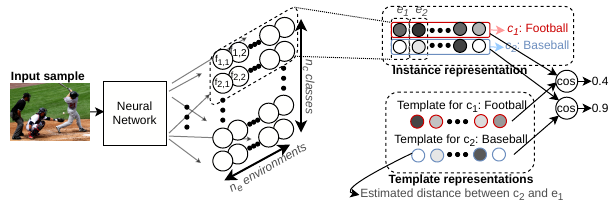
October 2020
Spinks, Graham and Moens, Marie-Francine
End-to-end deep learning technique to learn structured and composable representations.
Computers
details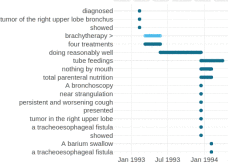
december 2020
Leeuwenberg, Tuur and Moens, Marie-Francine
An approach towards extraction of more complete temporal information for all events, and obtain probabilistic absolute event timelines by modeling temporal uncertainty with information bounds.
IEEE
details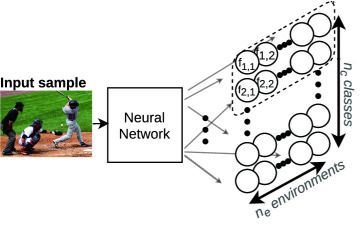
September 2020
Spinks, Graham and Moens, Marie-Francine
Novel technique for representing templates and instances of concept classes. The technique learns structured and composable representations from input images and discrete labels.
ANNPR 2020
details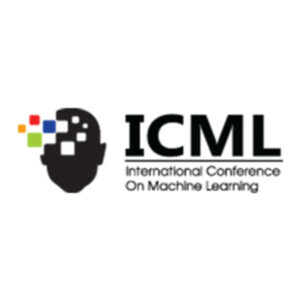
July 2020
Chrysakis, Aristotelis and Moens, Marie-Francine
Improves online continual learning performance in imbalanced settings by extending reservoir sampling.
ICML 2020
details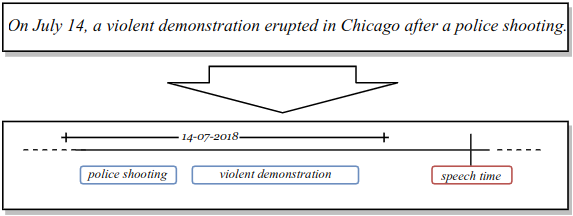
July 2020
Leeuwenberg, Artuur and Moens, Marie-Francine
This article presents a comprehensive survey of the research from the past decades on temporal reasoning for automatic temporal information extraction from text, providing a case study on the integration of symbolic reasoning with machine learning-based information extraction systems.
IJCAI 2020
details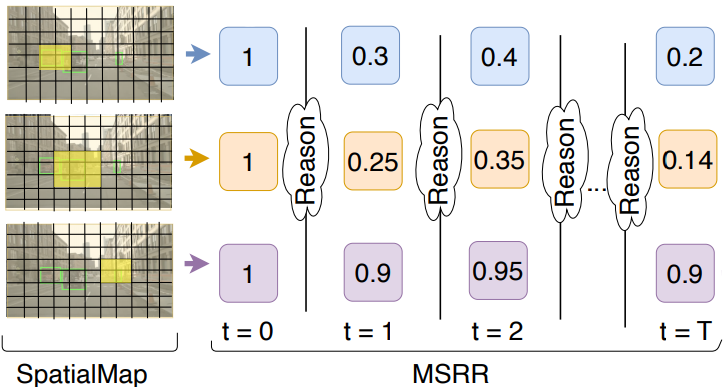
February 2020
Deruyttere, Thierry and Collell, Guillem and Moens, Marie-Francine
A new spatial memory module and a spatial reasoner for the Visual Grounding task. We focus on integrating the regions of a Region Proposal Network into a new multi-step reasoning model.
AAAI 2020 Reasoning for Complex Question Answering (RCQA) Workshop
details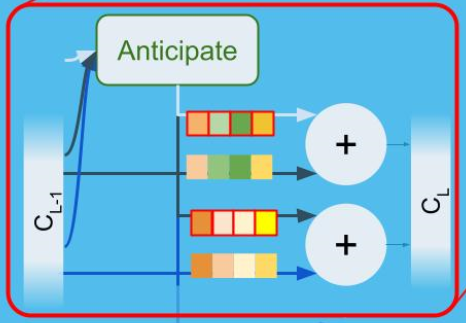
December 2019
Cornille, Nathan and Moens, Marie-Francine
Poster with first idea for internal-self-prediction objective for BERT, presented at Human Brain Project workshop in Glasgow.
HBP 2019
details
September 2019
Leeuwenberg, Artuur and Moens, Marie-Francine
This article presents a comprehensive survey of the research from the past decades on temporal reasoning for automatic temporal information extraction from text, providing a case study on the integration of symbolic reasoning with machine learning-based information extraction systems.
JAIR 2019
details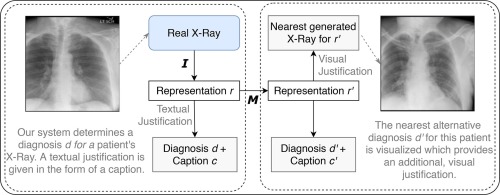
August 2019
Spinks, Graham and Moens, Marie-Francine
A holistic approach to justification for neural networks outperforms saliency maps. Visualizing the nearest alternative diagnosis is a powerful, novel approach. Creating a continuous textual representation is useful to bridge modalities.
Journal of Biomedical Informatics
details